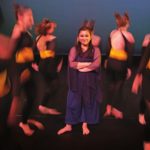
Can We Reverse Aging? Using Cognitive Training in Rodents to Enhance Overall Cognitive Performance

Name: Sarah Snider
Major: Cognitive Neuroscience
Minor: Economics
Advisor: Amy Jo Stavnezer
Cognitive plasticity is the ability for cognitive outcomes to be flexible and fluid. Cognitive plasticity is associated with brain plasticity and cognitive reserve which tend to decrease with age. By using a cognitive training task that is based on working memory and set shifting, older individuals’ cognitive plasticity range could be increased and the behavioral effects of aging could be reduced. Two rat strains, a control and an ADHD-model were examined, and the experimental groups were exposed to 12 days of cognitive flexibility training followed by working and reference Morris water maze testing. These tests assess the spatial learning ability of the rats. The study found that the ADHD-like strain that went through the training traveled farther in both versions of the MWM than their untrained counterparts or the control strain. The cognitive flexibility training did have an effect on rats, but in the opposite direction than predicted. We did demonstrate differences in the performance of the two strains at ages older than previously observed in literature.
Key Words: Cognitive Plasticity, Working Memory, Dopamine, Spatial Learning, ADHD
Posted in Comments Enabled, Independent Study, Symposium 2023 on April 15, 2023.
2 responses to “Can We Reverse Aging? Using Cognitive Training in Rodents to Enhance Overall Cognitive Performance”
Related Posts
Related Areas of Study
Neuroscience
Psychology, chemistry, philosophy, computer science, and other disciplines combine in the study of the nervous system
MajorEconomics
Learn how humans organize to sustain life and enhance its quality from a diversity of economic perspectives
Major Minor


Congratulations, Sarah!! Can’t wait to present with you tomorrow!
Congrats Sarah!! So proud of you!